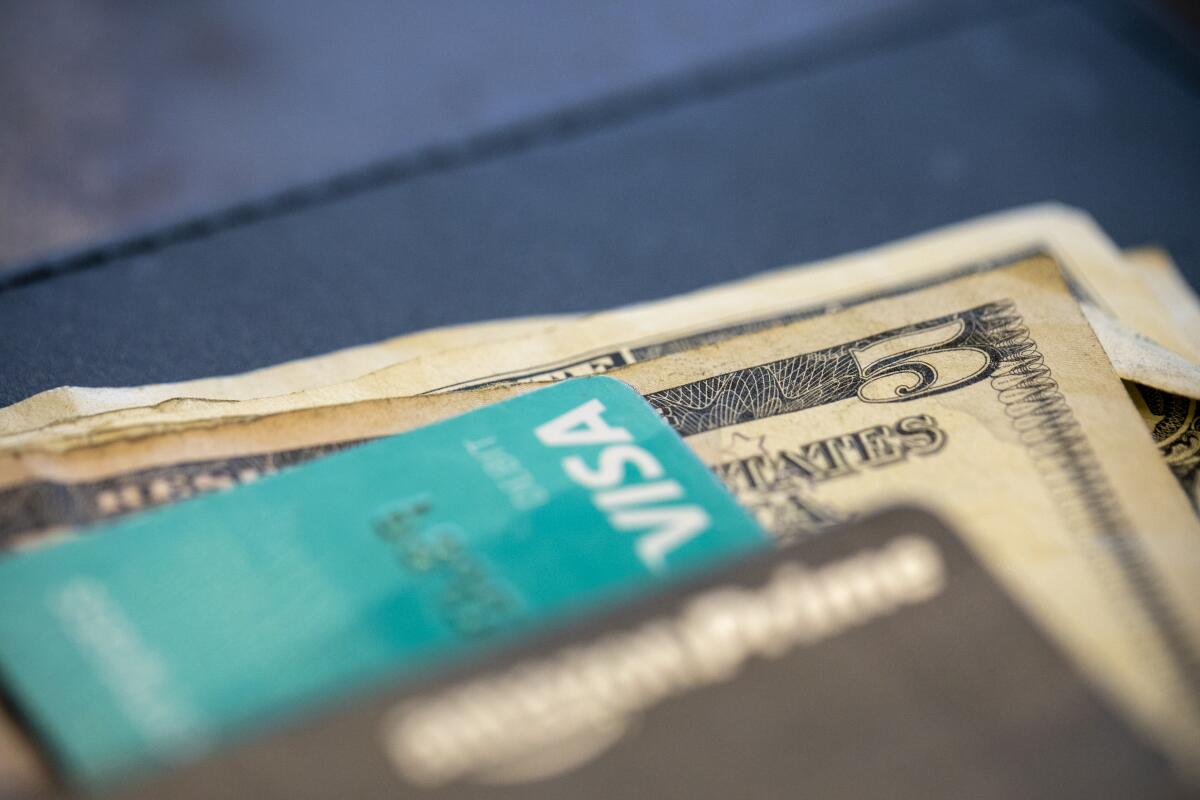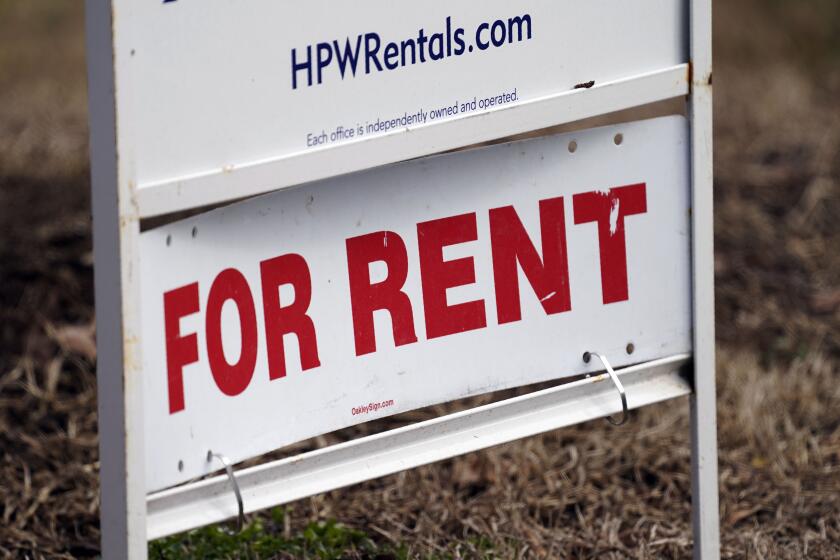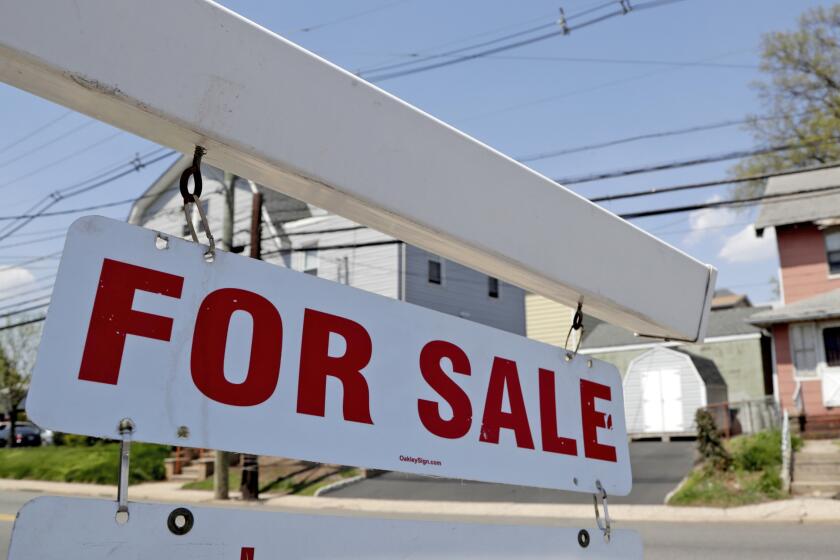Is it possible to have too many credit cards?

- Share via
Dear Liz: I have accumulated too many credit cards, sometimes to get bonus frequent flier miles. The frequent flier miles cards all have annual fees. I always pay cards in full each month.
My credit score is 800-plus every month. I have heard that your credit score is dinged when you close credit accounts. Is that true and by how much? How do you recommend reducing the number of credit cards?
Answer: Yes, closing cards can hurt your credit scores. The “how much” question is impossible to predict and will depend on your credit situation as well as how you go about reducing your card portfolio.
Keep in mind that there is no such thing as “too many credit cards” as far as credit scoring formulas are concerned. As long as you pay your bills on time and use only a small portion of your available credit limits, you can have lots of cards and great scores.
However, monitoring a bunch of different cards can be overwhelming. You also don’t want to keep paying annual fees for cards that aren’t delivering sufficient benefits.
Your credit score is only one factor landlords take into account when deciding who would be a good tenant.
If the fees are your primary concern, identify the cards you want to close and ask the issuers if you can get a “product change” to a no-fee card. This typically won’t affect your scores because the account is simply being transferred rather than being closed and reopened.
If you need to thin the herd, be aware that credit scoring formulas are sensitive to credit utilization, or the amount of your available credit you’re using on each card and overall.
If you have multiple cards from the same issuer, ask if the credit limit from the card you’re closing can be added to one of your remaining cards. Another option is to close only your lowest-limit cards.
You won’t want to close any cards if you’ll be looking for a major loan, such as auto financing or a mortgage, in the next few months. Hold off until after you’ve got the loan.
Also try to use up or transfer any points or miles you’ve earned on the cards you plan to close because those rewards may disappear at closure.
There are a number of variables involved, including whether you live in a community property state such as California.
Determining a house’s value
Dear Liz: I understand that as a widow, if I sell my house I get the stepped-up value from the year my husband died. Should I have gotten an appraisal at that time (26 years ago)? How do I find out what my home was worth then? We bought it in 1973 and he died in 1998.
Answer: In most states, half of a couple’s jointly owned property gets a new, favorable step-up in tax basis at a spouse’s death. In community property states such as California, both halves of the property may get that step-up.
A professional appraisal 26 years ago could have been helpful, although a good appraiser can do a retroactive assessment, said Jennifer Sawday, an estate planning attorney in Long Beach.
Before you hire an appraiser, though, hire a tax pro, Sawday said. The CPA or tax preparer will use the data to file your return, report your home sale and compute any capital gains taxes owed, so find out how they recommend obtaining it.
If you report check fraud to your bank promptly — typically within 30 to 60 days of your statement date, depending on state law — then you should be made whole.
Alternatives to paper checks
Dear Liz: Because I am concerned about check fraud, I pay most of my bills online. However, I still need checks for paying my housekeeper, gardener, etc. I use a gel ink pen to deter fraud but was wondering if there is something else I should consider doing.
Answer: Checks you hand to people you know are probably less risky than those you send through the mail, but there may be better options.
Most Americans have accounts with at least one peer-to-peer payment app such as Venmo, Zelle or PayPal. These can be a secure and convenient way to pay people you know.
Be sure to create a strong, unique password for your account and to keep the apps updated. Whatever payment method you use — checks, online payments or peer-to-peer apps — continue to monitor your linked bank or credit card accounts so you can spot and quickly report any suspicious transactions.
Liz Weston, Certified Financial Planner, is a personal finance columnist for the Los Angeles Times and NerdWallet. Questions may be sent to her at 3940 Laurel Canyon, No. 238, Studio City, CA 91604, or by using the “Contact” form at asklizweston.com.
More to Read
Inside the business of entertainment
The Wide Shot brings you news, analysis and insights on everything from streaming wars to production — and what it all means for the future.
You may occasionally receive promotional content from the Los Angeles Times.













